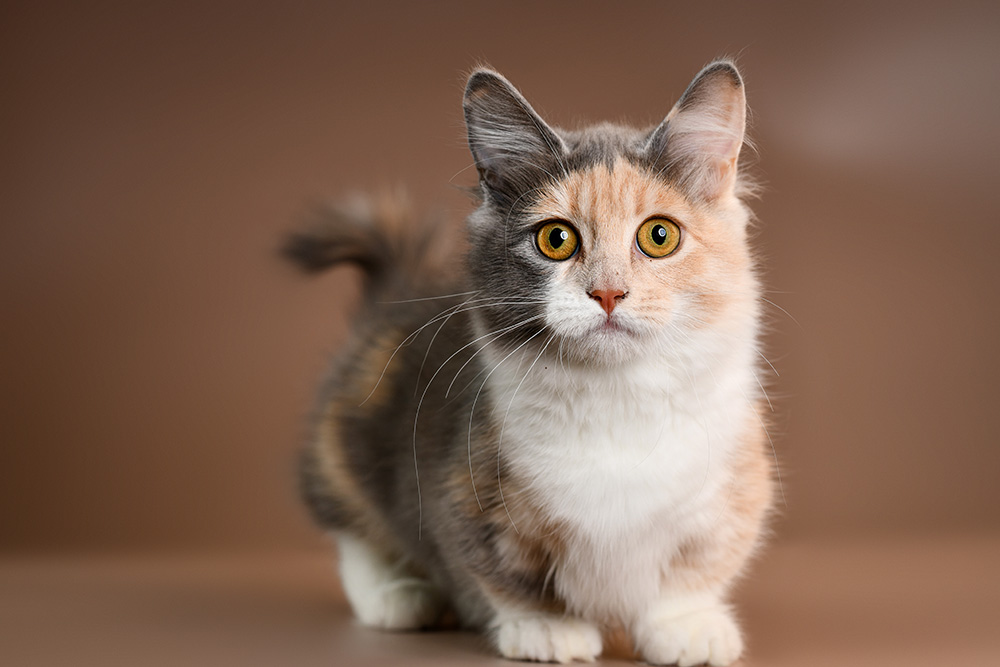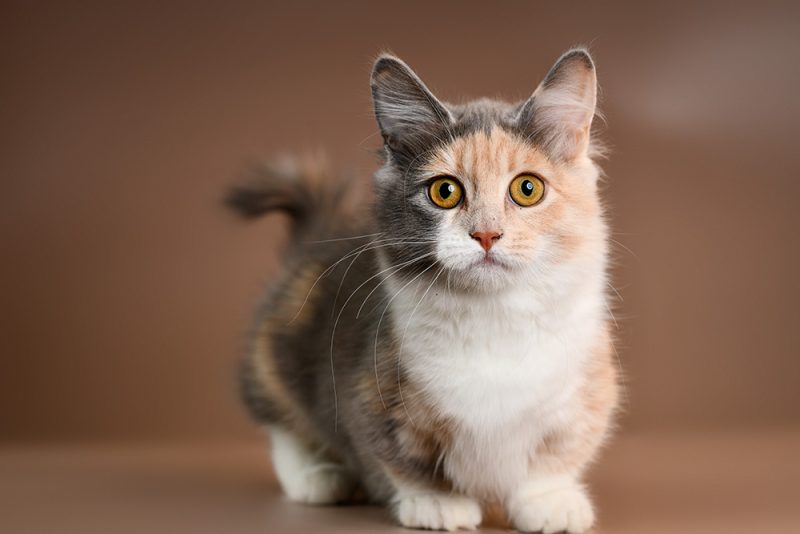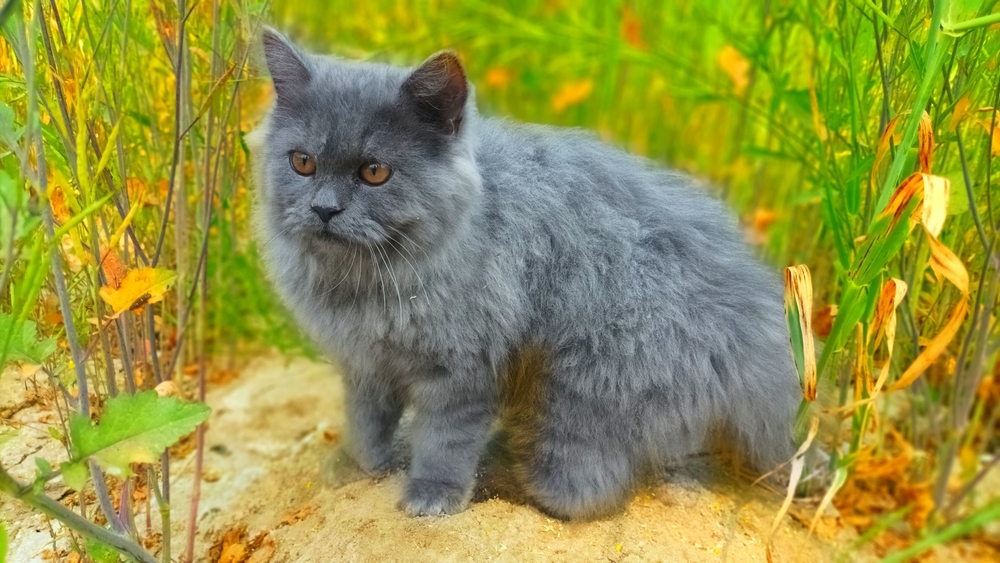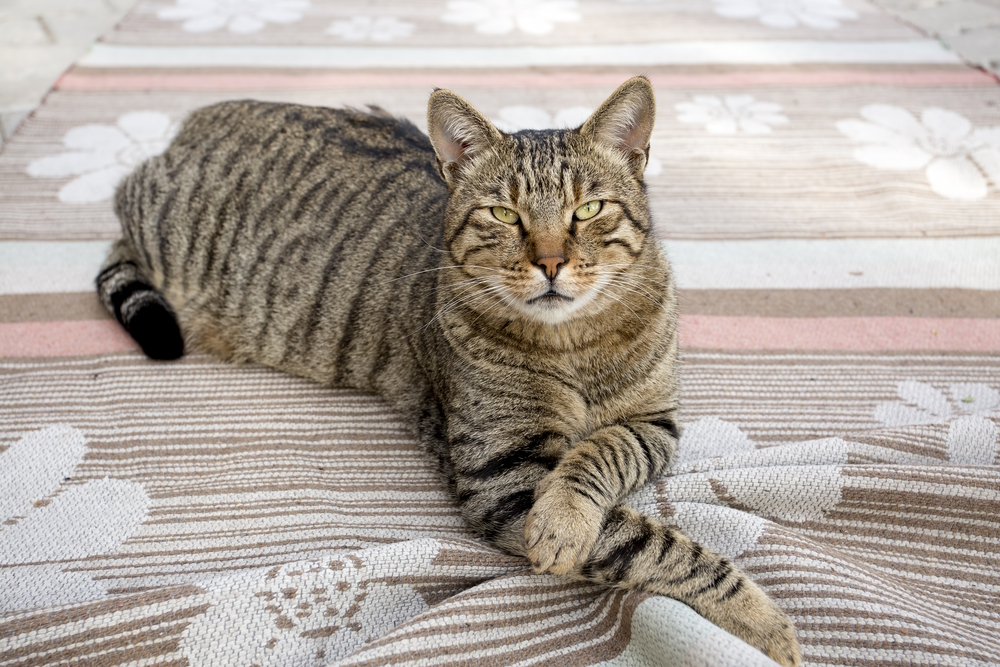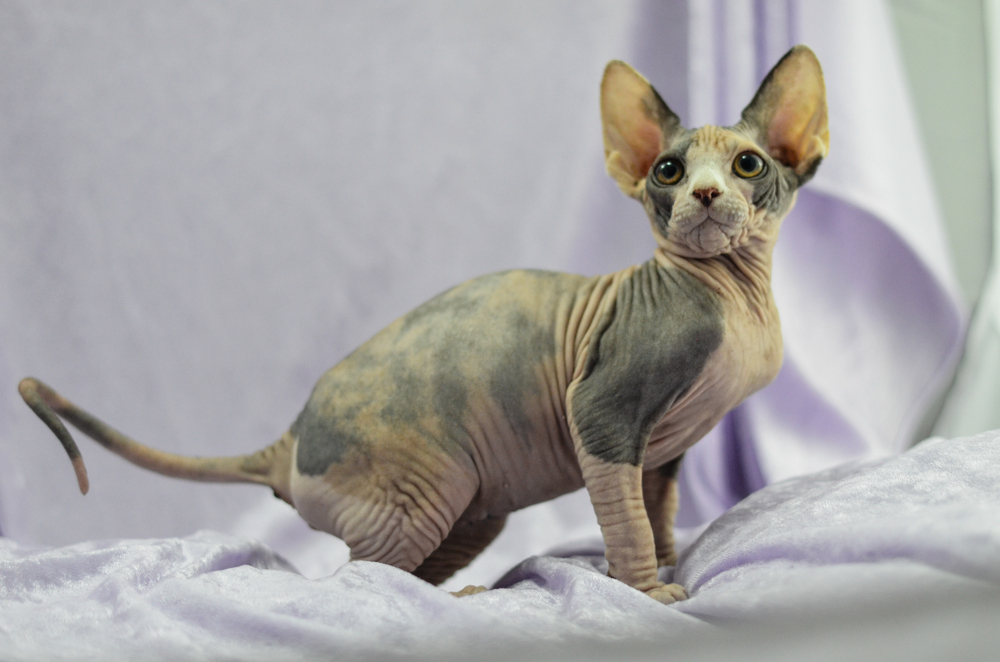Click Below to Skip Ahead
Munchkin cats are adorable medium-sized felines that are most known for their cute, stubby legs. They’re often called Sausage Cats and are known as the Dachshunds of the cat world. Along with having a cute and charming appearance, Munchkin cats have very sweet and social personalities, and they enjoy being around people and other pets.
While it’s hard to resist adopting the first Munchkin cat you see, it’s important to get to know them and understand their care needs before bringing one home.
Breed Overview
Height:
6–9 inches
Weight:
6–9 pounds
Lifespan:
12–15 years
Colors:
Various coat colors and patterns
Suitable for:
Families with pets, families with older children, social lifestyles
Temperament:
Curious, friendly, intelligent, playful
Despite being classified as a dwarf cat breed, there’s nothing small about Munchkins other than their short legs. They’re actually medium-sized cats and have larger-than-life personalities. Munchkins are a rare and uncommon breed in the US, so meeting one is a particularly special treat. These cats are known for having dog-like tendencies and are typically confident around strangers and get along with other pets.
Munchkin Characteristics
Munchkin Kittens
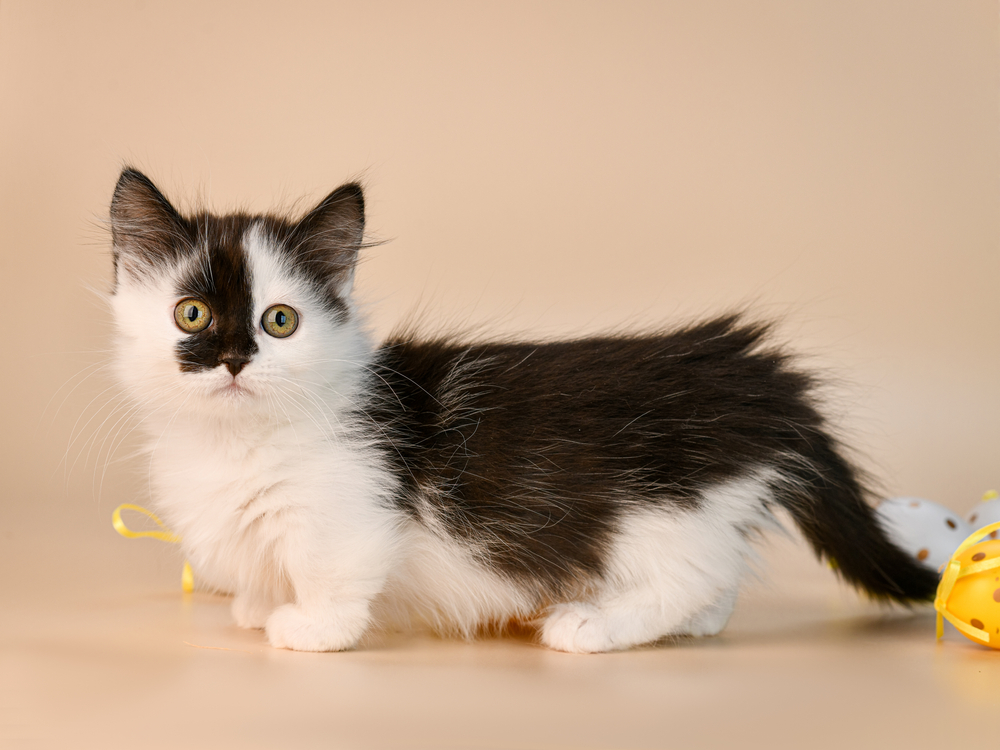
Finding Munchkin cat breeders can be challenging because there aren’t too many in the US. The Munchkin also isn’t officially recognized by the Cat Fanciers’ Association (CFA), so you won’t be able to find a registry of verified Munchkin breeders. Therefore, it’s extremely important to do your research and ensure you’re working with a reputable and responsible cat breeder before you decide to purchase one of their kittens.
Munchkin kittens are playful and energetic. Because they have short legs, they’re not the best at jumping and clearing heights. This can be a benefit to their safety, as you’ll rarely find a Munchkin kitten getting stuck in an unreachable place. However, it’s important to keep an eye on them when they’re playing because they may get stuck on a countertop or shelf and have difficulty getting down. They may not know their limits and try to jump down on their own, which can lead to serious injury.
Munchkin owners will find that their kittens are easy to train. They’re usually fairly confident and quick to form strong bonds with their primary caretakers. They also take to using a litter box quickly and without issues. Some Munchkin kittens may develop a taste for playing fetch and other interactive games with their owners.
Temperament & Intelligence of the Munchkin
Munchkins are affectionate and sweet cats. They love to play and receive attention from their family members. While they can be energetic, they’re also known to enjoy snuggling and lying close to their owners. They’re easygoing and aren’t known to have demanding or needy personalities.
Because they’re so sociable, Munchkins are a breed worth considering for people who enjoy hosting and opening up their homes to friends and family. They don’t mind the frequent foot traffic, and their curiosity will probably get the best of them and drive them to greet and interact with guests.
Munchkins are also intelligent cats that require plenty of mentally stimulating activities incorporated into their daily routine. They’ll enjoy playing with enrichment toys, and some can develop an interest in learning new tricks.
Are These Cats Good for Families? 👪
While Munchkins have easygoing, non-aggressive personalities, they’re typically recommended for families with older children because they can get injured easily from roughhousing. They can also develop osteoarthritis as they age, and movement can become painful for them depending on the severity of the condition. Therefore, they require gentle handling, and it’s important for people to know when they must be left alone and have their own space to relax and rest.
Does This Breed Get Along With Other Pets?
Munchkins generally get along with other pets, especially if they receive early socialization. They can usually hold their own with smaller dogs, and bigger dogs must learn to be gentle around them. Munchkins also don’t have a particularly strong prey drive, so they can get along with smaller pets. However, they can’t be fully trusted to be left unsupervised with them. They can get quite curious and accidentally injure smaller animals.
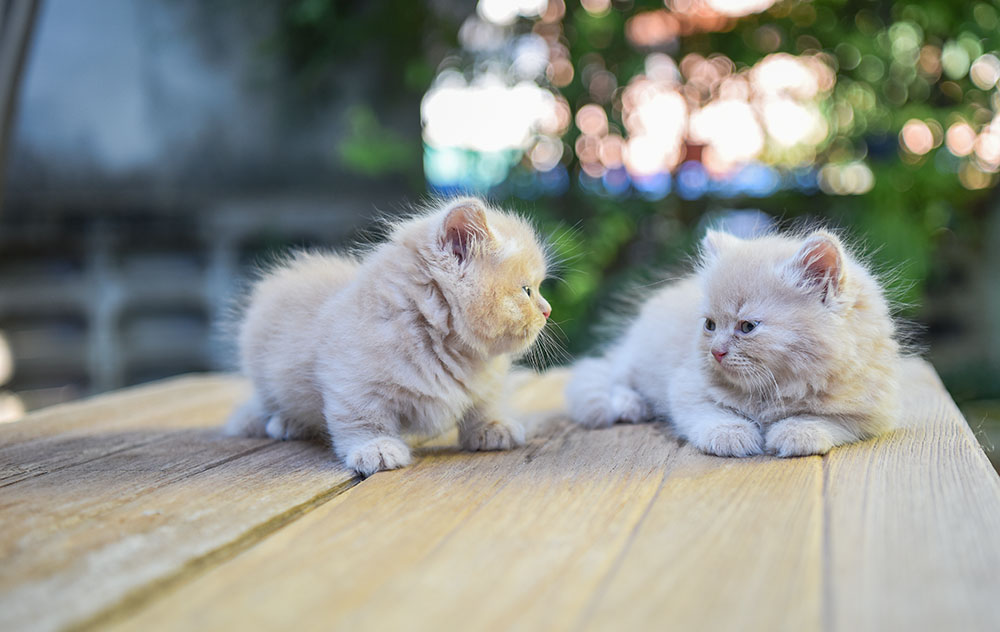
Things to Know When Owning a Munchkin
Food & Diet Requirements 🐡
Munchkins are energetic cats, so they often benefit from eating a high-protein diet that can supply them with enough energy and calories. Since they can develop bone and joint issues, you may want to consider feeding them cat food with a joint health formula or adding a supplement to their diet when they grow older.
Diet and nutrition are essential to a cat’s well-being, so it’s important to consult your veterinarian to determine the best food options for your Munchkin. It’s also best to get clearance from your veterinarian before making changes to their food or adding supplements to their diet.
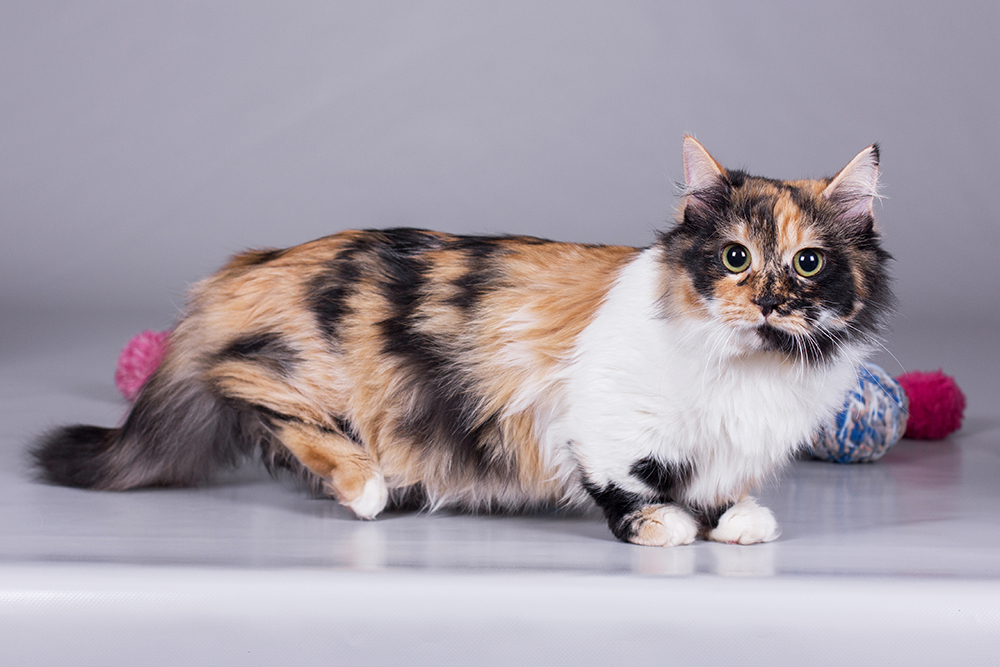
Exercise 🐈
Munchkins benefit from exercising at least 30 minutes a day. You’ll usually find that you don’t have to motivate them to stay active. They’ll find ways to have fun, and they usually enjoy chasing toys around the house.
Keep in mind that Munchkins are fast and nimble, but they’re not the best jumpers because of their short legs. However, they’ll still appreciate being able to access vertical spaces. They’ll often require additional steps and cat trees with lower entry points that make climbing and jumping easier. So, make sure to install a few intermediate steps between the ground and a window perch or shelf so that your Munchkin can reach them safely.
Training 🧶
Munchkins can be eager to please and capable of learning new tricks. They’re easygoing and don’t really have a stubborn or hard-headed side to them, so training them is relatively easy. Some Munchkins take well to clicker training and usually learn how to walk on a leash fairly well.
Grooming ✂️
Munchkins don’t have any particularly unique grooming needs. They can have either short or long hair. Shorthaired Munchkins can get by with a quick weekly brushing, while longhaired Munchkins benefit from getting brushed two or three times a week. This will ensure that their coat is free of debris, mats, and tangles.
In general, cats are susceptible to dental disease, so it’s important to keep up with a Munchkin’s dental hygiene. Since they’re fairly docile, you can often find success in brushing their teeth if you use a lot of positive reinforcement. You can also give them dental chews and treats to help freshen up their breath and fight plaque and tartar buildup.
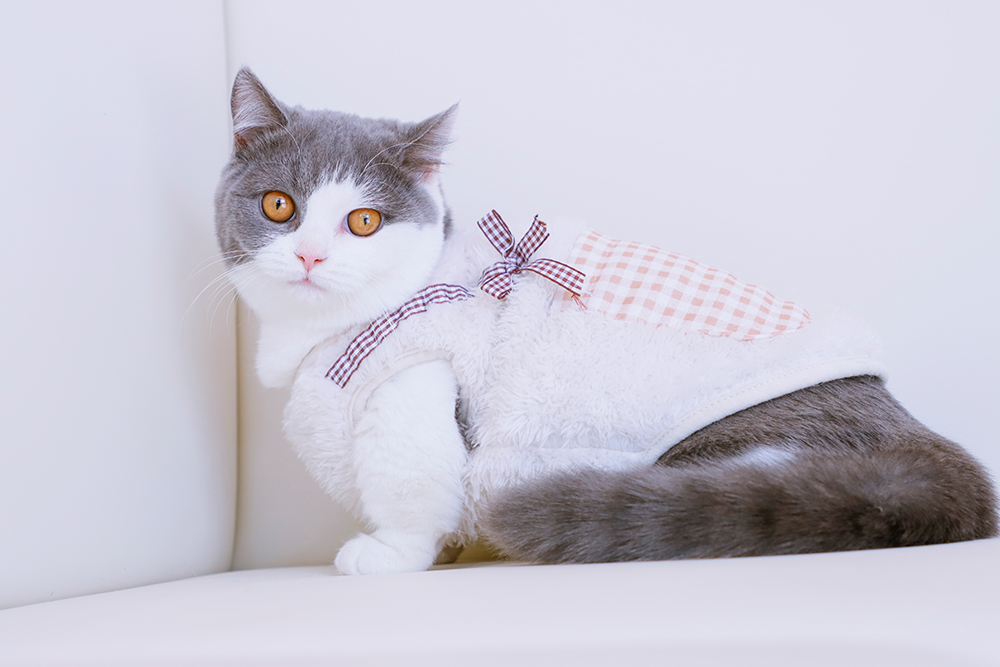
Health and Conditions 🏥
There seems to be conflicting information about Munchkin health and whether they suffer from their deformity, so we asked in-house Catster veterinarian Dr. Karyn Kanowski.
“The genetic mutation that gives these cats their characteristic short limbs does have some negative consequences,” Dr. Karyn says. “The most significant of which is the increased risk of developing osteoarthritis, along with several other musculoskeletal problems. It is always important to remember that when we selectively breed for certain physical characteristics, they often come hand-in-hand with health issues.”
Several of the health problems that plague this breed can be reduced through careful breeding, and by being mindful when feeding and exercising your pet.
- Hyperthyroidism
- Dental disease
- Osteoarthritis
- Lordosis
- Pectus excavatum
Male vs Female
Male Munchkins can grow a little larger than females, but this isn’t always the case. Other than size, there’s no sufficient evidence that proves temperamental differences between female and male Munchkins. If anything, behavioral differences may be more noticeable between cats that have been spayed or neutered and those that haven’t. Cats that haven’t had these surgeries will engage in mating behaviors and may act more territorial, do more frequent urine marking, and be more prone to wandering. Cats that have been spayed or neutered are less likely to display these behaviors.
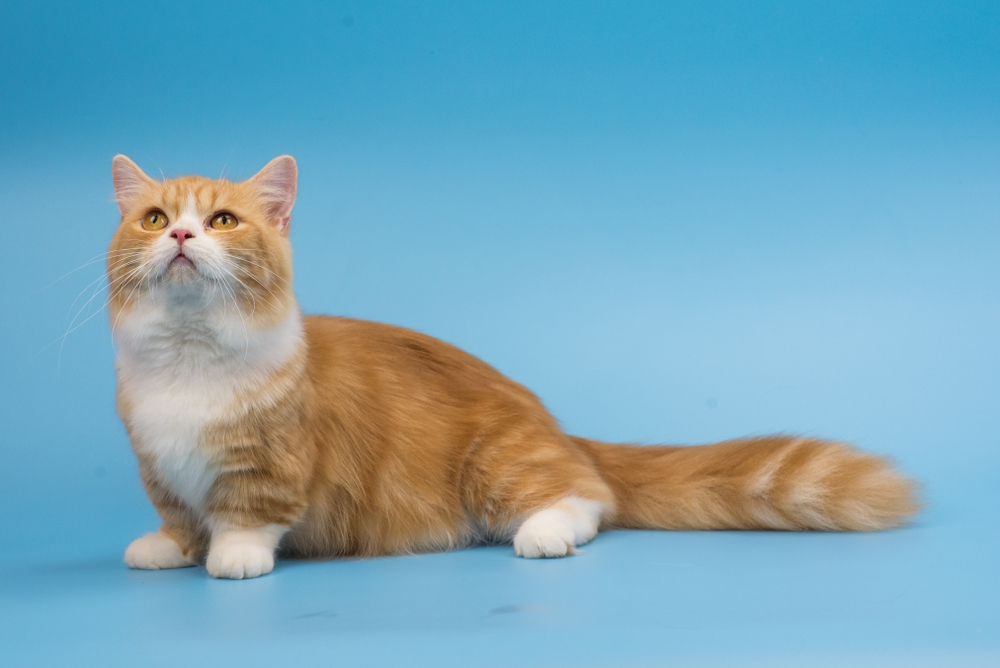
3 Little-Known Facts About the Munchkin
1. Munchkin cats were discovered by accident.
Despite what some people may believe, Munchkins were not intentionally bred to develop short legs. Their short legs are caused by a randomly occurring natural genetic mutation.
The first litter of known Munchkins was discovered by Sandra Hochenedel in 1983. She had taken in a pregnant stray cat, and half the kittens in this cat’s litter had short legs. Munchkins have all descended from this cat litter.
2. Not all Munchkin cats have short legs.
Munchkins may be well-known for their short legs, but not all Munchkins have them. Munchkins can be placed into three categories:
- Standard
- Super-short
- Rug hugger
Standard Munchkins have legs that are almost as long as the length of an average cat’s legs. Rug Hugger Munchkins have the shortest leg lengths, and Super-short Munchkins fall somewhere in between.
3. The shortest cat in the world is a Munchkin.
Guinness World Records recognizes Cye the Munchkin to be the shortest domestic cat in the world. Cye’s standing height is 5.35 inches from floor to shoulders. This measurement is roughly 2.2 centimeters shorter than the previous record holder.
Final Thoughts
Munchkins are a rare yet wonderful cat breed. They make excellent house pets and have easygoing, flexible personalities that fit in well with many different kinds of families. They love being around people and can live harmoniously with other pets. Munchkins can also be a good fit for beginner cat owners. Just keep in mind that they’ll need some modifications that will help them jump and access higher platforms and spaces.
It can be challenging to find a Munchkin breeder near you, and this breed isn’t officially recognized by the CFA. So, make sure to do thorough research on Munchkin breeders nearest you before deciding to buy one of their kittens. This will ensure that you bring home a healthy Munchkin kitten that’s ready to start a fun and beautiful life with you and your family.
Featured Image Credit: MDavidova, Shutterstock

